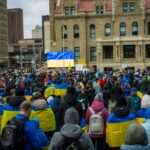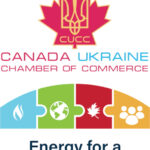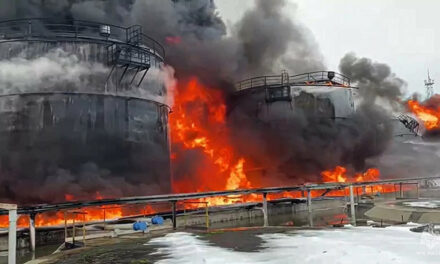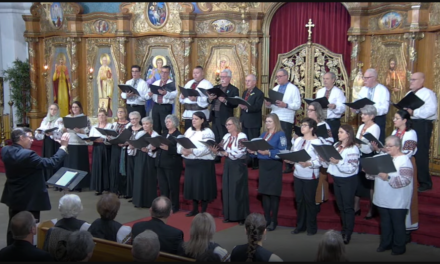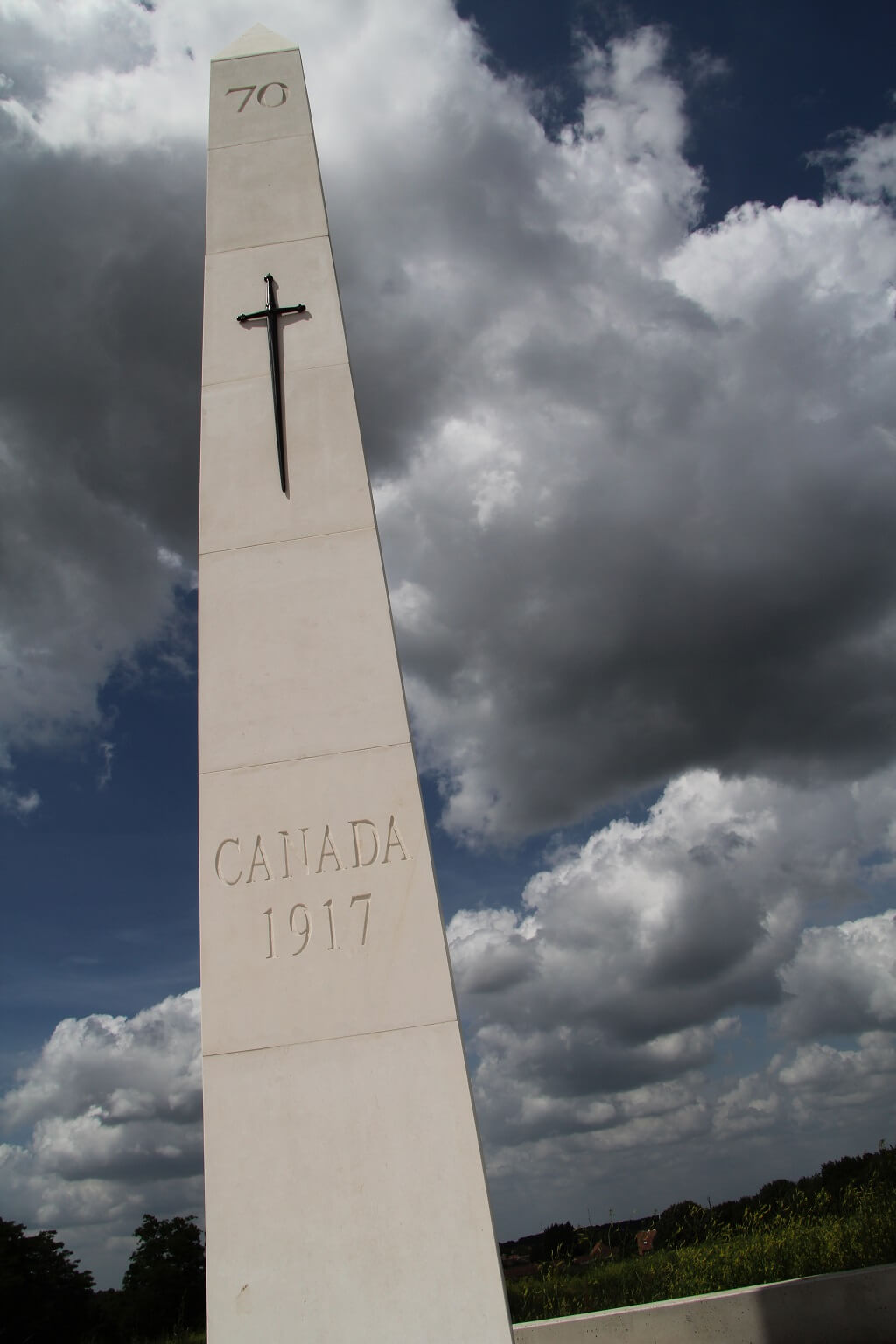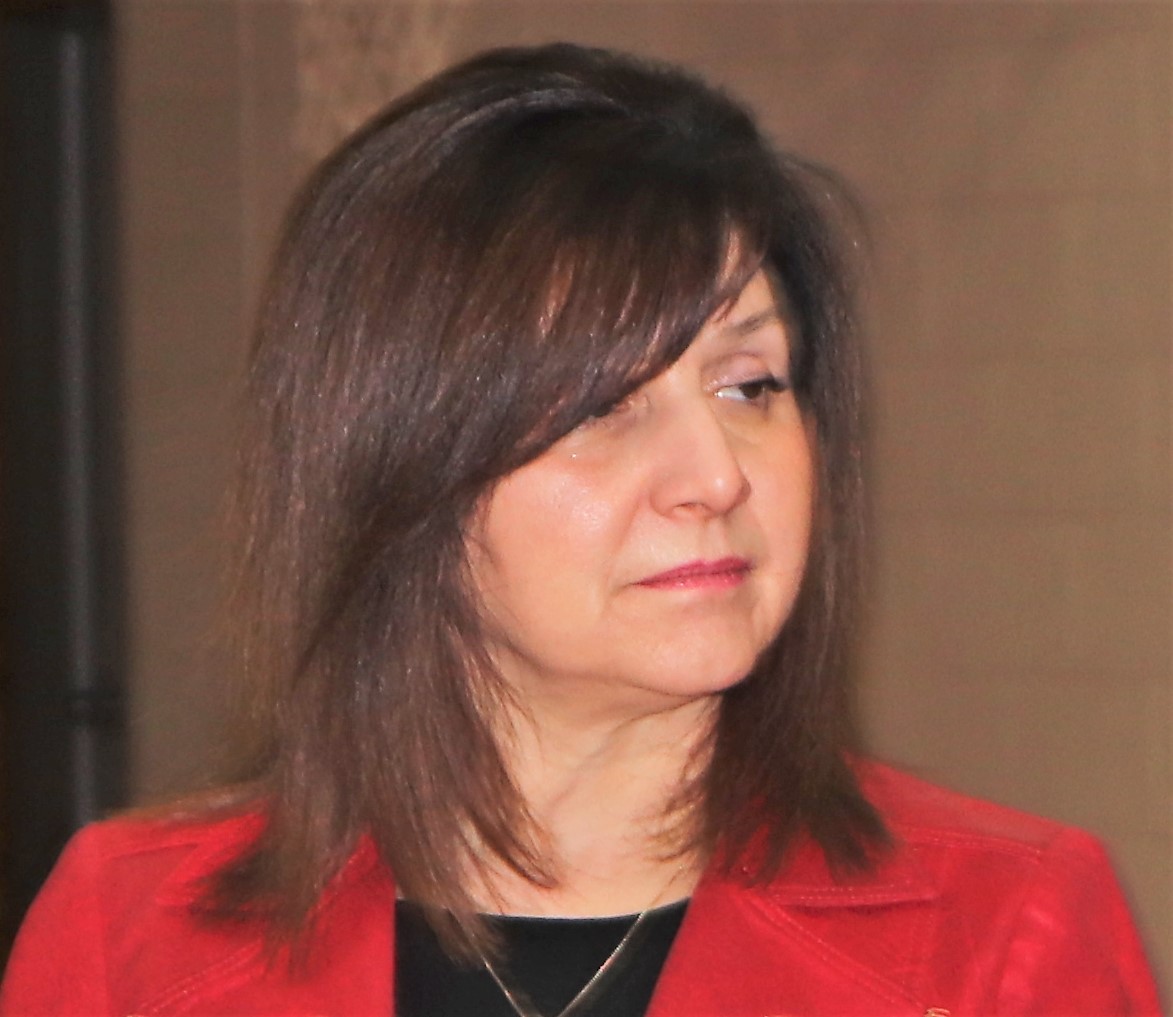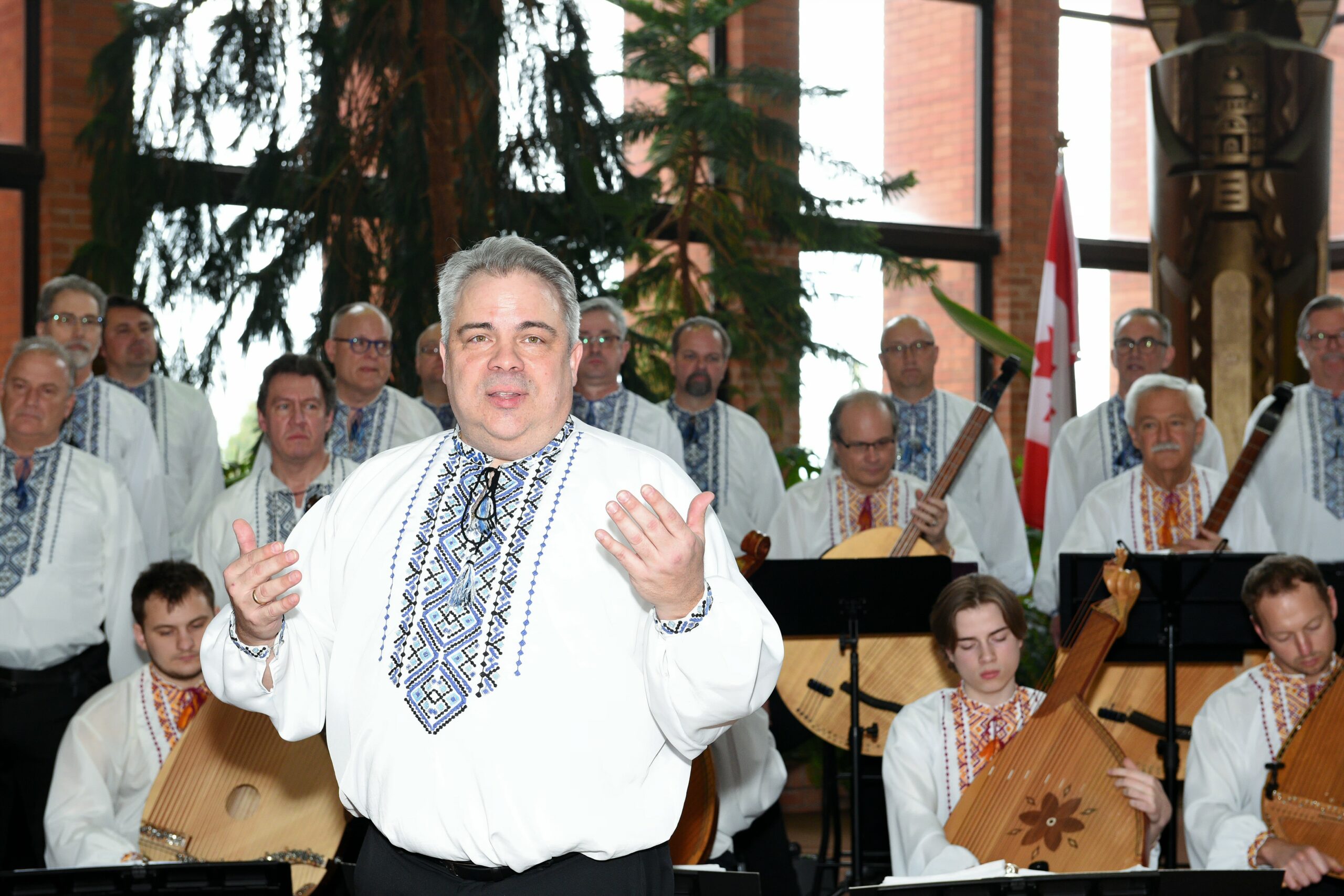Marco Levytsky, National Affairs Editor.
Thousands of Canadians descended upon Juno Beach near the French town of Courseulles-sur-Mer in Normandy on June 6, just as thousands of Canadians descended upon that beach 75 years later. But this time, they came not to fight, but to honour those who did fight so valiantly in 1944 to establish a beachhead for the liberation of France and the eventually defeat of Nazi Germany 11 months later.
To lead the invasion on one of the five beaches targeted in Normandy was a remarkable achievement for a nation that, at that time, had less than 10% of the population of the United States, and less than a quarter that of the United Kingdom, each of whom led the invasions of two of the other four beaches – the Americans as Omaha and Utah; the British at Gold and Sword.
The assault on Juno is generally considered — alongside Utah — the most strategically successful of the D-Day landings, states Wikipedia. Historians suggest a variety of reasons for this success. Mark Zuehlke notes that “the Canadians ended the day ahead of either the US or British divisions despite the facts that they landed last and that only the Americans at Omaha faced more difficulty winning a toehold on the sand”, suggesting that the calibre of the training the 3rd Canadian Infantry Division had received beforehand explains their success.
The Canadian Army’s 3rd Infantry Division and 2nd Armoured Brigade seized the beach and its seaside villages while under intense fire from German defenders — an extraordinary example of military skill, reinforced by countless acts of personal courage,” states the Canadian Encyclopedia. The 3rd Infantry Division took heavy casualties in its first wave of attack but took control of the beach by the end of the day. More than 14,000 Canadian soldiers landed or parachuted into France on D-Day. They were followed by 150,000 additional Canadian troops over the next few months, and throughout the summer of 1944 the Canadian military used the town’s port to unload upwards of 1,000 tons of material a day, for the first two weeks following D-Day on 6 June 1944. At Juno there were 1,074 Canadian casualties. 359 Canadians were killed.
But if Canada was punching way above its weight on D-Day, Ukrainian Canadians, as an ethnocultural group were punching above their weight even more. It is estimated that 35,000 to 50,000 Canadians of Ukrainian origin served in Canada’s forces in WWII. That amounts to between 11 and 14 percent of the population.
Among the Ukrainian Canadians killed during D-Day operations (compiled for Ukrainian Canadian Congress by Ron Sorobey and Myron Momryk) were the following:
Feschuk, William: Trooper, 25 Squadron, 6th Armored Regiment, 1st Hussars, R.C.A.C. Son of Michael and Mary Feschuk, of Vita, Manitoba. Age 26.
Franko, Harry: Rifleman, Royal Winnipeg Rifles, R.C.I.C. Son of William and Stella Franko, of Selkirk, Manitoba. Age 19.
Prokopchuk, Steve: Rifleman, Royal Winnipeg Rifles, R.C.I.C Son of Tony and Pauline Prokopchuk of Sandy Lake, Manitoba. Brother of Donald, Charles, Teenie, Mary, Irene and Anne. Husband of Mary (nee Waldron) Prokopchuk of Manchester, England. Age 28
Makichuk, Michael John: Cpl., Royal Winnipeg Rifles, R.C.I.C. Son of Mr. and Mrs. Saffron Sam Makichuk, Portage La Prairie, Manitoba. Husband of Elizabeth Amelia Makichuk, of Debert, Nova Scotia. Age 23
Leskiw, John: Rifleman, 1st Bn Regina Rifles
Miskow, Wesley William: Sergeant Royal Winnipeg Rifles, Son of Philip and Mary Miskow, of Shoal Lake, Manitoba Age 23
Pockiluk, Henry Andrew: Corporal, Royal Winnipeg Rifles, R.C.I.C, Son of Nicholas and Julia Pockiluk, of London, Ontario, Age 27
Skwarchuk, Metro: Trooper, Fort Garry Horse, R.C.A.C., Son of John and Sophie Skwarchuk, of Devil Lake, Saskatchewan. His brother John served with the Fort Garry Horse Regiment and he died on July 4, 1944. John is buried at Beny-Sur-Mer Canadian War Cemetery, age 24
Solodiuk, Michael: Rifleman, Royal Winnipeg Rifles, R.C.I.C,
Spilchak, George: Rifleman, Royal Winnipeg Rifles, R.C.I.C, Son of Anthony and Teennie Spilchak, of Pine Ridge, Manitoba. Age 22
Warun, William A.: Gunner, 14 Field Regiment, Royal Canadian Artillery. Son of Alex and Annie Warun, of Geraldton, Ontario. Age 22
Wintoniw, Mikie: Rifleman, Royal Winnipeg Rifles, R.C.I.C, Son of Nykola and Nellie Wintoniw, of Zhoda, Manitoba Age 26
Wladyka, Edward: Rifleman, Regina Rifle Regiment, R.C.I.C. Son of William and Frances Wladyka; husband of Louise M. Wladyka, of Winnipeg, Manitoba. Age 30.
Woronchuk, Eugene: Rifleman, Royal Winnipeg Rifles, R.C.I.C. Son of Michael and Pauline Woronchuk, of Brandon, Manitoba. Age 28.
On October 4, 2015 a newly elected President of the Ukrainian War Veterans Association of Canada, former officer in the RCAF and a member of the Ukrainian Canadian Congress – Toronto Branch, Remembrance Committee, Captain Andre Sochaniwsky CD, made a presentation at the UNF 38th National Convention in Winnipeg. The title of his presentation was “Ukrainian Canadian Military Contributions in World War II”. Capt. Sochaniwsky also talked about the Dieppe Raid that took place on August 19, 1942 in France. It was one of the most devastating and bloody chapters in Canadian military history. Of the 4,963 Canadian soldiers who embarked from England for the operation, only 2,210 returned, and many of them never even landed on the shores of France. Although, this battle ended in disaster for the Allied forces, the lessons gained from it proved to be crucial to the victory at D-Day.
After the Canadian government issued the official list of fatal casualties, the New Pathway counted 38 Ukrainian names, of which 17 were from Ontario or of unknown origin, a high proportion from Windsor, 12 from Manitoba, and nine from Saskatchewan. “The Saskatchewan MP Walter Tucker counted seven officers of Ukrainian origin, who lost their lives at Dieppe”
After the Normandy Landing D-Day, the members of Ukrainian Canadian Serviceman’s Association (UCSA) created the Central Ukrainian Relief Bureau (CURB) to help the Ukrainian refugees who ended up in countries of Central and Western Europe. CURB sent food, clothes and medicaments to the refugee camps; Canadian doctors and dentists also offered their service. When it became known that some of the refugees could be forcefully sent to Soviet Union, Ukrainian Canadian officers, such as Bohdan Panchuk and future Brigadier General Joseph Romanow protected them from forced departure to the Soviet Union. They would visit the Displaced Persons camps and inform the camp staff to not allow Soviet repatriation teams from taking Ukrainians to the Soviet Union. Later on, CURB aided these displaced persons and sought to ease their immigration to Canada.
Many people are unaware of the contributions that Ukrainian Canadians made to the war effort and the critical role they played in helping many of the Ukrainian refugees taken from their homes to serve as forced labour in Germany, or displaced by the fighting itself. But it is a story that need to be told.
The Ukrainian Canadian Research and Documentation Centre (UCRDC) is currently working on a documentary film that sets out to tell this story. The film will have first-hand accounts of Ukrainian Canadian veterans. The Documentary Committee includes two members from the Ukrainian War Veterans Association – Andre Sochaniwsky and George Serhijczuk. The Director of the documentary is the award winning John Paskievich, who is based in Winnipeg. Currently the film is in final editing. All major campaigns are covered in the movie, including post World War II, when Ukrainian Canadian soldiers assisted the Displaced Persons.
Now, more than ever it is the responsibility and obligation of the Ukrainian Canadian community to give due recognition to these heroes.
UCRDC is a registered Canadian charity. Donations to support this project can be made: On-line: www.canadahelps.org and search “ukrainian research” and specify “uciww2”; by mail: Make chq payable to UCRDC and specify “uciww2”.
Another worthwhile project is that of the Ukrainian Canadian Civil Liberties Foundation, which, in association with the Association of Ukrainians in Great Britain, is raising money to install a commemorative stained glass window in a church in London, England, honouring the men and women who volunteered to serve overseas during the Second World War and some of whom remained in Europe after the war to help rescue and resettle Ukrainian political refugees and Displaced Persons. You can donate on line at our website if you wish. The window will be unveiled in the spring of 2020. For more information contact (https://www.ucclf.ca/heroes-of-their-day).
Lest we forget.
Share on Social Media




